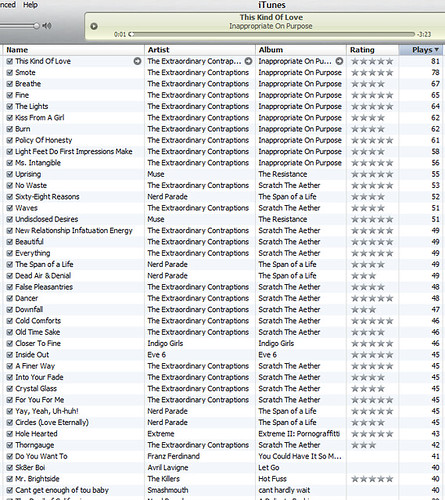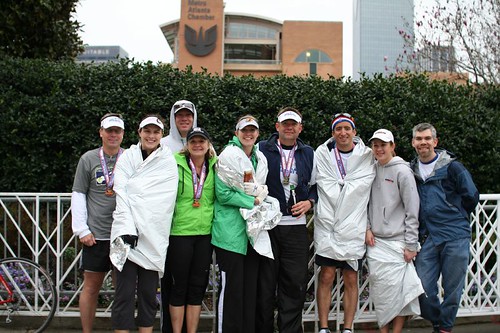
So, there you are: capturing images of a concert that fully embody its spirit and energy. Sure, you know that with the low light and general clutter of an on-stage environment you’re likely to throw out most of your photos but you have high hopes of some excellent moments; times where the performers just shine. Where you can feel their music screaming from the image.
Instead you get home and discover that of 250 images, exactly four aren’t crap. That ratio is a bit lower than I care for.
There are manifold reasons why concert photography is hard: everyone’s moving; light is low and variable as the performers move in and out of spots; foreground and background clutter make framing difficult; your options for location are limited (especially in small venues). These are known problems and you do your best to overcome them and, of course, shoot until your hands hurt and you run out of memory cards or battery (or film, I suppose).
Last night was exceptionally frustrating for me, though. These are friends I’m shooting1 and they could really use some great, spectacular, fantabulous, insert-adjective-here concert shots. Part of my particular problem resides with inexperience and the famous learning curve. For example, I learned a few things last night about trusting my autofocus, even when I’ve got good light and spots for focusing on. Here’s an image that I thought was going to be prime:

With some obvious problems like the water bottle in the foreground which would prevent me using this as a full top-to-bottom performer shot, this was a great setup. Unfortunately I got the image off the camera and found this:

Grrr! Out of focus faces are the bane!
Lower down the image we see the problem.

The autofocus picked Sharon’s hip as it’s point of focus (yes, I know it’s me, but I’m still going to anthropomorphize, here) and the shallow depth of field in this situation rendered a potentially good shot into crap. At least, crap for anything other than a small, low-res image similar to the one here on this blog. I was shooting with a Sigma 30mm f/1.4 lens and in this setup my depth of field was about 0.4 feet. Over the distance between Sharon’s hip and her head, that 0.4 feet was not sufficient to keep her face inside the zone of focus. I was shooting from about 5 feet away and don’t forget that while depth of field is usually defined as a planar distance from the lens, it’s really a zone of a sphere. If I were 30 feet away with the same depth of field, the vertical distance between her hip and head would have made little difference; at five feet, it killed the shot.
There was a bit of serendipity, though. Here’s Kevin in the same shot. Too bad he’s cropped out at the edge. It’s fun, though.

Kevin has a wearable drum rig for some of the shows. It’s nice when he’s got it because he comes out from behind his drum set where I can get pictures of him.

There are a lot of other things I’ve learned about concert photography in the last year. Most of it through bad experience. There are a few websites out there that have good tips and hints but mostly it’s just getting out there and trying again2. Which I will. And I’ll probably still get crappy photos but at least I’ll have a higher good/crap ratio.
1: The Extraordinary Contraptions have just released their latest album, Scratch the Aether. Check it out!
2: Having good equipment helps, but only somewhat. I’ve had good success using the Canon Rebel XT (about three generations back from the latest and greatest version) and the Sigma 30 f/1.4. There was a guy at the concert who graciously allowed me to borrow his Canon 70-200 f/2.8L IS lens (FABULOUS LENS!) and with that one in hand and using IS for all it’s worth…I captured some of the worst photography of the evening. Know your own equipment.


















